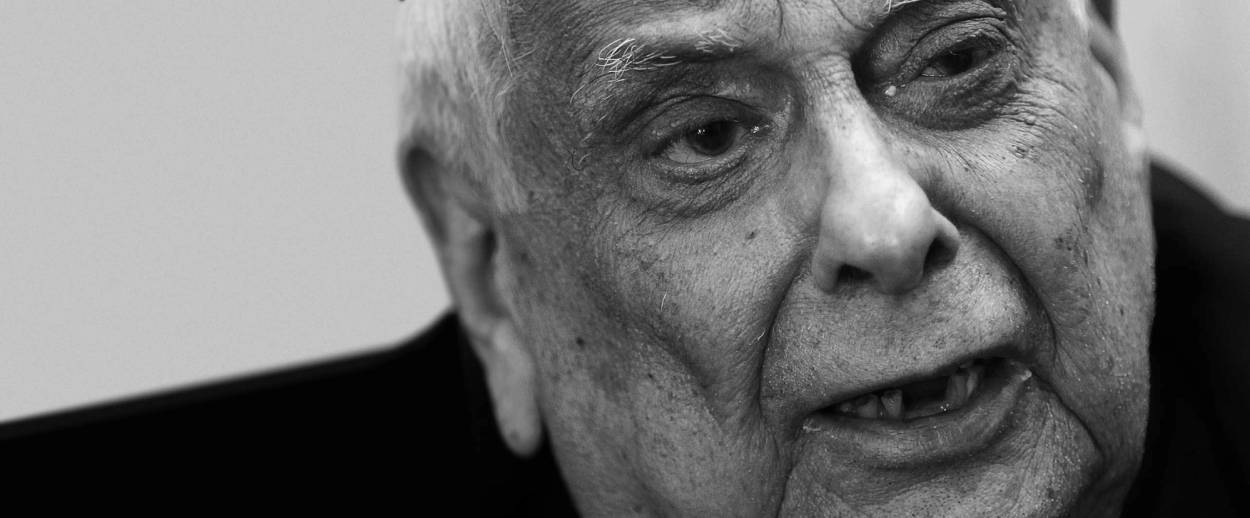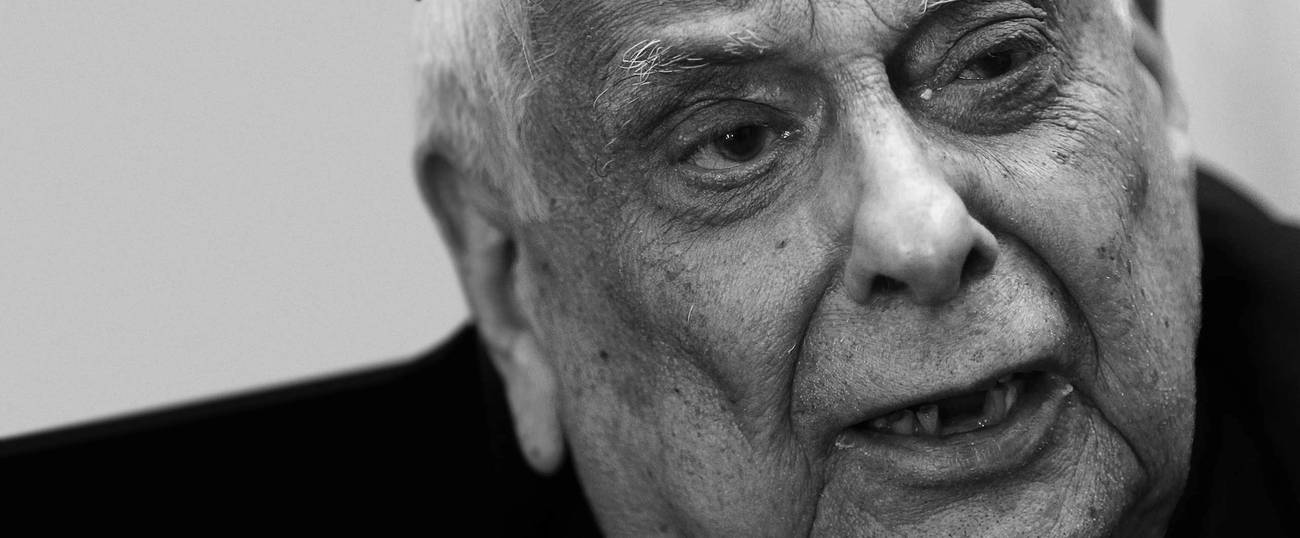The Day a Jewish General Invented a Muslim Country
How J.F.R. Jacob saved hundreds of thousands of lives in the land that became Bangladesh




It’s quite a story.
This story may seem unlikely in this era of generalized war between cultures, civilizations, and religions. And I am grateful to British journalist Ben Judah for having brought it to light in an article that appeared in the Jewish Chronicle the day after the visit to Israel of Indian Prime Minister Narendra Modi.
The time is December 1971. The place is the territory then known as East Pakistan. Separated by 1,600 kilometers from West Pakistan, this Bengali part of Pakistan has been in rebellion since March.
The central government in Islamabad, rejecting the secession of what will eventually become Bangladesh, is engaged in a merciless repression, the cost of which, in lives, remains unknown even today, almost a half-century later. Half a million people may have died, of perhaps a million, 2 million, or more.
On Dec. 3, India decides to enter the conflict, to “interfere,” as one would put it today, in the domestic affairs of its neighbor so as to stop the bloodbath. The fighting rages.
The Bengali freedom fighters, known as the Mukti Bahini, now supported by India, become increasingly daring.
New Delhi’s strategy is to build up slowly and gradually, a decision. This strategy seems to many ill-suited to the Bangladesh of the day, a terrain of few roads, major rivers, and innumerable marshes. Thirteen days into the new phase of the war, with the Pakistanis having massed 90,000 troops around Dacca, the capital, against the Indians’ 3,000, New Delhi appears to be stuck and has hardly boxed itself into the beginnings of a siege. And it is at this moment that a high-ranking Indian officer, without notifying his superiors, takes a plane, lands in Dacca, presents himself to General Niazi, head of the Pakistani forces and pulls off one of the most spectacular bluffs in modern military history: “You have 90,000 men,” the Indian officer tells Niazi. “We have many more, plus the Mukti Bahini, who are full of the vengeance of their people and will give no quarter. Under the circumstances, you have only one choice: to persist in a fight that you cannot win or to sign this letter of surrender that I have drafted in my own hand, which promises you an honorable retreat. You have half an hour to decide; I’ll go have a smoke.”
Niazi, falling into the trap, chooses the second option. To the world’s amazement, 3,000 Indian soldiers accept the surrender of 90,000 Pakistanis. Tens of thousands—no—hundreds of thousands of lives on both sides are spared.
And Bangladesh is free!
The story might have ended there.
Except that the general behind the masterly coup that makes him godfather to a new Muslim country is Jewish. His name is Jack Jacobs.
He was born in 1924 in Calcutta into a Sephardic family that had arrived there from Baghdad two centuries before, leaving behind 2,000 years of history.
In 1942, learning of the ongoing extermination of Europe’s Jews, he enlists in the British army in Iraq, fights in North Africa and then moves on to Burma and Sumatra in the campaign against the Japanese.
And remaining in the military after the independence of India in 1947, he is the only Jew to rise high in the country’s military services, eventually coming to command the eastern army that, in December 1971, will be mounting the offensive against Islamabad’s legions.
It happens that I met this man 46 years ago. I was in rebellious Bangladesh, having responded to French novelist André Malraux’s call for the formation of an International Brigade to fight for a Bengali land still in limbo but suffering mightily under the hand of West Pakistan.
I had just entered Dacca with a unit of the Mukti Bahini.
In the company of Rafiq Hussain—eldest son of the first Bangladeshi family to welcome me into their home in the Segun Bagicha neighborhood, and who later became my friend—I saw Jacob at Race House on Dec. 16, standing behind (and letting himself eclipsed by) his colleague, General Jagit Singh Aurora, signing, in Niazi’s presence, the act of surrender that he had penned.
The next day, I happened to see him again with a handful of journalists and heard him speak of Malraux, whom he was reading; of Yeats, whose poems he knew by heart; of his twin Jewish and Indian identity; of Israeli General Moshe Dayan, whom he worshipped; and of the liberation of Jerusalem, which he held as an example of military skill. But to my recollection he said nothing about the intensely dramatic, stirringly romantic, face-to-face encounter with Niazi in which the war of personality carried a thousand times more weight than the war between armies — an encounter that determined the fate of the young Bangladesh.
I can picture his mischievous look. His rather heavy silhouette, unimposing in itself though emanating an incontestable authority.
And his strange and reticent way of remaining a step or two behind his comrades in arms, generals Aurora and Manekshaw, as if reluctant to claim any credit for a feat of audacity that I now know was his alone.
He appeared to me, that day, like a representative of one of the lost tribes, spreading the genius of Judaism.
He might have been a Kurtz from Kaifeng, Konkan, Malabar, or Gondar, newly returned from the heart of darkness but ready to head back up the river. Or a biblical Lord Jim or Captain MacWhirr, done for good with typhoons and ready to forge an alliance with the coolies.
People who save Jews are known in Judaism as righteous. How should one refer to a Jew who saved, raised to nationhood, and baptized a people who were not his own?
***
Translated by Steven Kennedy. You can help support Tablet’s unique brand of Jewish journalism. Click here to donate today.
Bernard-Henri Lévy is a philosopher, activist, filmmaker, and author of more than 30 books including The Genius of Judaism, American Vertigo, Barbarism with a Human Face, Who Killed Daniel Pearl?, and The Empire and the Five Kings. His most recent film, Slava Ukraini, premiered nationwide on May 5, 2023.